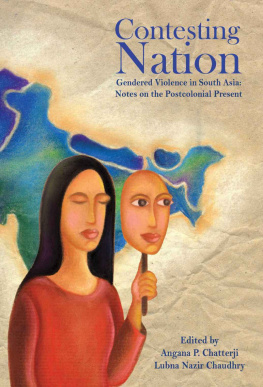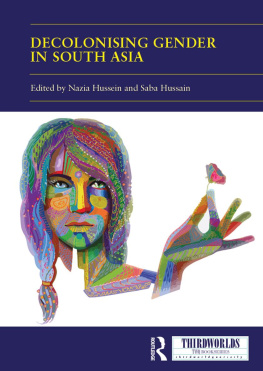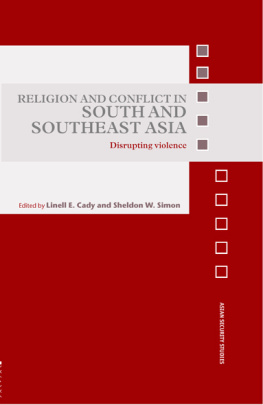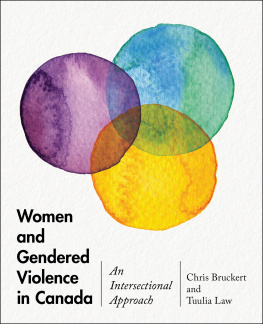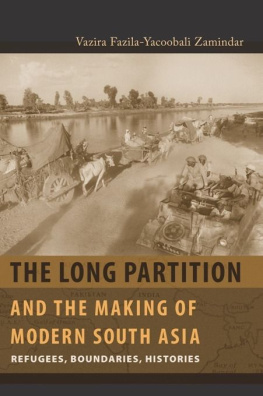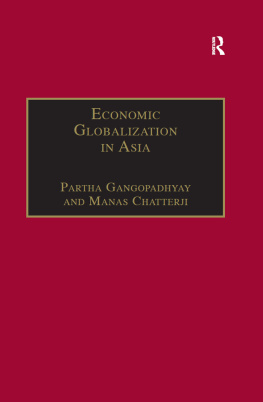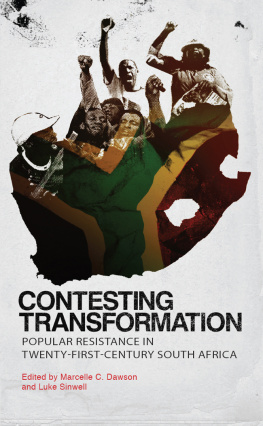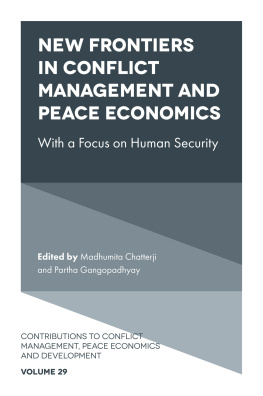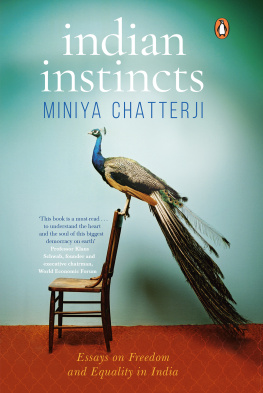Angana Chatterji - Contesting Nation: Gendered Violence in South Asia: Notes on the Postcolonial Present
Here you can read online Angana Chatterji - Contesting Nation: Gendered Violence in South Asia: Notes on the Postcolonial Present full text of the book (entire story) in english for free. Download pdf and epub, get meaning, cover and reviews about this ebook. year: 2015, publisher: Zubaan, genre: Politics. Description of the work, (preface) as well as reviews are available. Best literature library LitArk.com created for fans of good reading and offers a wide selection of genres:
Romance novel
Science fiction
Adventure
Detective
Science
History
Home and family
Prose
Art
Politics
Computer
Non-fiction
Religion
Business
Children
Humor
Choose a favorite category and find really read worthwhile books. Enjoy immersion in the world of imagination, feel the emotions of the characters or learn something new for yourself, make an fascinating discovery.
- Book:Contesting Nation: Gendered Violence in South Asia: Notes on the Postcolonial Present
- Author:
- Publisher:Zubaan
- Genre:
- Year:2015
- Rating:4 / 5
- Favourites:Add to favourites
- Your mark:
- 80
- 1
- 2
- 3
- 4
- 5
Contesting Nation: Gendered Violence in South Asia: Notes on the Postcolonial Present: summary, description and annotation
We offer to read an annotation, description, summary or preface (depends on what the author of the book "Contesting Nation: Gendered Violence in South Asia: Notes on the Postcolonial Present" wrote himself). If you haven't found the necessary information about the book — write in the comments, we will try to find it.
Angana Chatterji: author's other books
Who wrote Contesting Nation: Gendered Violence in South Asia: Notes on the Postcolonial Present? Find out the surname, the name of the author of the book and a list of all author's works by series.
Contesting Nation: Gendered Violence in South Asia: Notes on the Postcolonial Present — read online for free the complete book (whole text) full work
Below is the text of the book, divided by pages. System saving the place of the last page read, allows you to conveniently read the book "Contesting Nation: Gendered Violence in South Asia: Notes on the Postcolonial Present" online for free, without having to search again every time where you left off. Put a bookmark, and you can go to the page where you finished reading at any time.
Font size:
Interval:
Bookmark:

ZUBAAN
is an imprint of Kali for Women
Zubaan
128B Shahpur Jat
1st floor
New Delhi 110 049
www.zubaanbooks.com
First published by Zubaan, 2012
Copyright Angana P. Chatterji and Lubna Nazir Chaudhry, 2012
Copyright individual essays with the authors
All rights reserved
10 9 8 7 6 5 4 3 2 1
eBook ISBN: 9789383074129
Print source ISBN: 9789381017876
This eBook is DRM-free.
Zubaan is an independent feminist publishing house based in New Delhi, India, with a strong academic and general list. It was set up as an imprint of the well known feminist house Kali for Women and carries forward Kalis tradition publishing world quality books to high editorial and production standards. Zubaan means tongue, voice, language, speech in Hindustani. Zubaan is a non-profit publisher, working in the areas of the humanities social sciences, as well as in fiction, general non-fiction, and books for young adults that celebrate difference, diversity and equality, especially for and about the children of India and South Asia under its imprint Young Zubaan.
Typeset by Jojy Philip, New Delhi 110 015
Printed at Raj Press, R-3 Inderpuri, New Delhi 110 012
Engendering Violence: Boundaries, Histories, and the Everyday
Sukanya Banerjee, Angana P. Chatterji, Lubna Nazir Chaudhry, Manali Desai, Saadia Toor
Women's Agency in War and Post-Conflict Sri Lanka
Darini Rajasingham-Senanayake
Gender, Citizenship and Visual Culture
Usha Zacharias
Radicalizing Gendered Narratives
Rita Manchanda
Sodomy, Civil Liberties, and the Indian Penal Code
Jyoti Puri
Stranded at the Intersection of Local and Global Patriarchies
Huma Ahmed-Ghosh
The Structure and Transformation of Gendered Violence in Bangladesh
Meghna Guhathakurta
Mohajir Women Survivors and Structural Violence
Lubna Nazir Chaudhry
Communalism and Sexual Violence in Gujarat
Kavita Panjabi
State, NGOs and Militant Islam
Lamia Karim
The Negotiation of Divorce and Violence in Plural Legal Settings in Kolkata
Srimati Basu
Negation of 'Kashmiriyat' and Immiseration of the Kashmiri Woman
Nyla Ali Khan
The Biopolitics of Hindu Nationalism
Angana P. Chatterji
An intellectual and political obligation to speak to structural and personal inequities, borders and margins, nation and gender, and speech/silence has shaped this collection. The essays elaborate on a myriad of issues that bind South Asia in the historical present. As institutions of state and majoritarian and heteronormative nation-making fracture and frame cultural and political community, how are these processes productive of social violence in general, and gendered violence in particular?
We are privileged that this collection includes the work of feminists who are diverse in history and heritage, scholarship and disciplinary affiliations, acutely aware that collaborations on South Asia are often dominated by scholarship of India. Situated in South Asia and in the diaspora, these women bring powerful and varied experiences and insights to questions of violence, nation and nationalisms, rights, justice and resistance across issues of gender and ethnicity, class and identity, and community and culture in Afghanistan, Bangladesh, India, Kashmir, Nepal, Pakistan and Sri Lanka.
The friendships and solidarities that emerged through this process are precious and we hope will endure. Our collaboration permitted thinking the shared and divergent histories that shape us, and differing legacies of nation. We remain grateful to the contributors; Huma Ahmed-Ghosh, Srimati Basu, Meghna Guhathakurta, Lamia Karim, Nyla Ali Khan, Rita Manchanda, Kavita Panjabi, Jyoti Puri, Darini Rajasingham- Senanayake, Usha Zacharias, for the care and commitment that produced this scholarship. To Sukanya Banerjee, Manali Desai, Saadia Toor, our heartfelt thanks for shaping the introduction, and to Kamala Visweswaran, for her generous contributions in enabling the process and the first version of this volume (see below). Working with each one of you has been an invitation to learn and be challenged. Shefali Chandra, Meenakshi Ganguly, Saba Gul Khattak, Chandra Talpade Mohanty, Sujata Moorti, Nimanthi Rajasingham, Yasmin Saikia, thank you for your thoughtful and astute counsel. We owe a great debt to Richard Shapiro for his alliance, advice and intellect. We are obliged to Rajib Akhter for diligent and caring support. We sincerely appreciate the editorial assistance offered by Annie Paradise and Mia Houtermans. We thank Pei Wu for her help with research checks and Heidi Andra Restrepo Rhodes for assistance with proof-reading. To Shweta Vachani, Preeti Gill and other colleagues at Zubaan, thank you for your expertise and labour. Most of all, our warmest thanks to Urvashi Butalia, whose formidable work and solidarity made this publication possible.
The essays in this collection were written between 2004 and 2007. Much has transpired since, across South Asia and elsewhere. We embarked on this project through the 32nd South Asia Conference at the University of Wisconsin-Madison in 2003, where a few of us convened a pre-conference on Gender, Violence and Community. Our exchanges facilitated complex reflections on our work as feminists immersed in scholarship-activism on South Asia and its diasporas. Following the pre-conference, Kamala Visweswaran offered an invitation to assemble a double issue for Cultural Dynamics, of which she was the North American Editor. We are thankful to her, to Guha Sankar, Fern Bryant, Janet Defreitas, Catherine Gibbons, and others at Cultural Dynamics for making possible that publication, which appeared in October 2004. We thank Sage Publications, especially Huw Alexander, for permission to reproduce the material published in Cultural Dynamics. This book is an amplification of that endeavour. An iteration of the collectively-authored introduction and articles authored by Angana P. Chatterji, Lubna Nazir Chaudhry, Meghna Guhathakurta, Lamia Karim, Rita Manchanda, Darini Rajasingham-Senanayake and Usha Zacharias were first published in Cultural Dynamics (2004, 16[2/3]: 31972). In addition, Srimati Basus article first appeared in Playing Off Courts: The Negotiation of Divorce and Violence in Plural Legal Settings in Kolkata, India (Journal of Legal Pluralism and Unofficial Law, 2007, 52: 4175). Nyla Khans article first appeared in The Land of Lalla-Ded: Politicization of Kashmir and Construction of the Kashmiri Woman (Journal of International Womens Studies, 2007, 9[1]: 2241).
We remain hopeful that histories, both violent and kind, can allow transformations and can power our becoming amid hybrid and non-normalizing worlds, in-between here and there, at home and in homelessness. We offer this, accepting that even as the concerns raised here are critical, too much is left unsaid.
Angana P. Chatterji and Lubna Nazir Chaudhry
April 2012
Sukanya Banerjee, Angana P. Chatterji, Lubna Nazir Chaudhry, Manali Desai, Saadia Toor
This volume addresses how borders violently mark womens bodies in wars of direct and indirect conquest, and how womens agency is constituted in these times. How is gendered violence inscribed through the spectacular and in everyday life? What is the role of war or armed conflict in transforming womens spheres of agency? As we write about this issue, we are struck by the historical paradox that we women in/from South Asia inhabit. Anti-colonial struggles that achieved independence and formed postcolonial nation-states have consolidated themselves through prodigious violence that defined and divided communities, memories and futures. Promises betrayed reverberate across the very borders such violation enshrines. This violence was inscribed upon womens bodies in very specific ways, as they became, to borrow from Gayle Rubin (1975), the vile and precious merchandise that was literally and figuratively exchanged as boundaries were imposed and enforced. As Veena Das evocatively states, we have been unable to name that which died when autonomous citizens[of India]were simultaneously born as monsters (2003: 332). This can be said of South Asia in its entirety.
Font size:
Interval:
Bookmark:
Similar books «Contesting Nation: Gendered Violence in South Asia: Notes on the Postcolonial Present»
Look at similar books to Contesting Nation: Gendered Violence in South Asia: Notes on the Postcolonial Present. We have selected literature similar in name and meaning in the hope of providing readers with more options to find new, interesting, not yet read works.
Discussion, reviews of the book Contesting Nation: Gendered Violence in South Asia: Notes on the Postcolonial Present and just readers' own opinions. Leave your comments, write what you think about the work, its meaning or the main characters. Specify what exactly you liked and what you didn't like, and why you think so.

